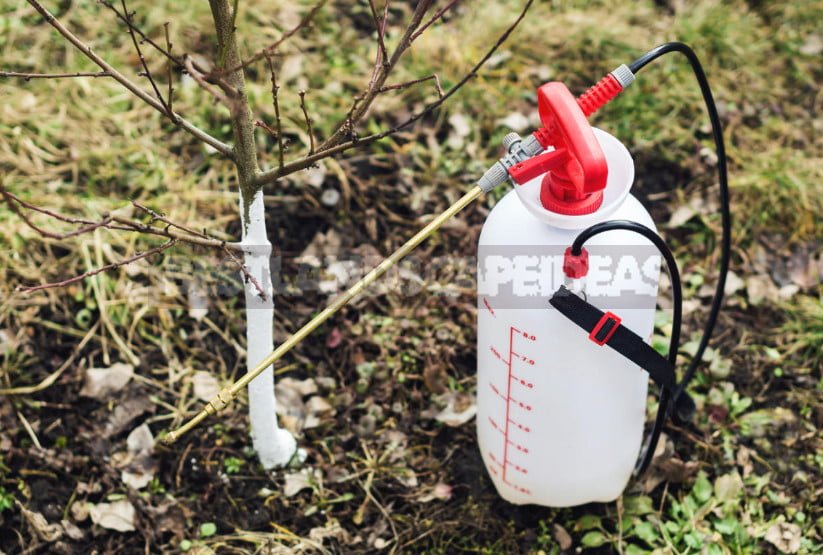
Autumn has come, which means that it is time to prepare the garden for winter. One of the most important events is the autumn treatment of trees and shrubs against all kinds of pests and diseases. For this there are different drugs, one of them – iron vitriol. About him today and will be discussed.
Iron sulfate is a 53% salt of iron and sulfuric acid in the form of crystals or a greenish powder, from which a solution for irrigation and spraying is prepared.
Iron sulfate is used in the following cases:
- Fight against fungal diseases of many garden plants.
- Prevention and treatment of chlorosis.
- Pest control.
- Fight against lichens, settled on tree trunks.
- Treatment of wounds and hollows of trees.
- Treatment of basement walls.
- Destruction of wood fungus.
Let’s consider in detail the main situations
Application for pest control
Iron vitriol is harmful to many insects and their larvae, as well as eggs laid under the bark of trees. Early in the spring, when the kidneys are not yet awake, you need to carry out the first treatment.
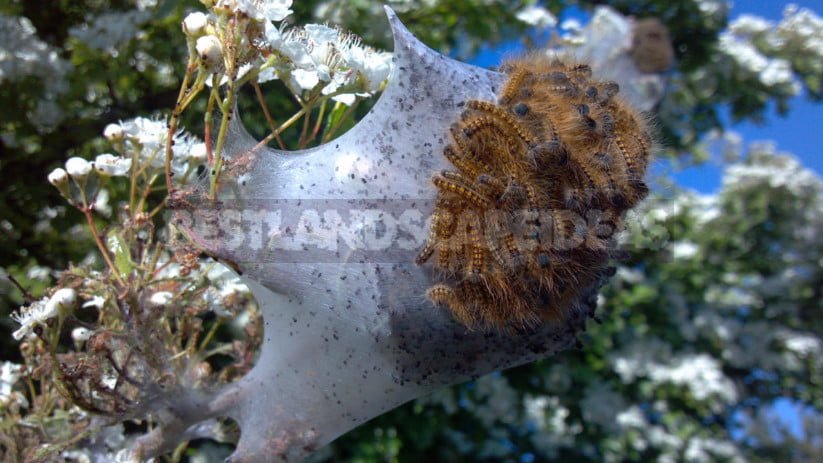
To do this, prepare a 5% solution (500 g of the substance is diluted in 10 liters of water) and abundantly sprayed or poured plants. It is also possible to treat fruit trees and shrubs in late autumn, after leaf fall.
This is a very effective drug against Apple sucker, the enemy of most fruit trees. With early spring spraying with 3% solution (300 g of the drug per 10 liters of water), almost half of the eggs laid by females die. It is necessary to spray both trunks and branches of a tree, and the soil under it.
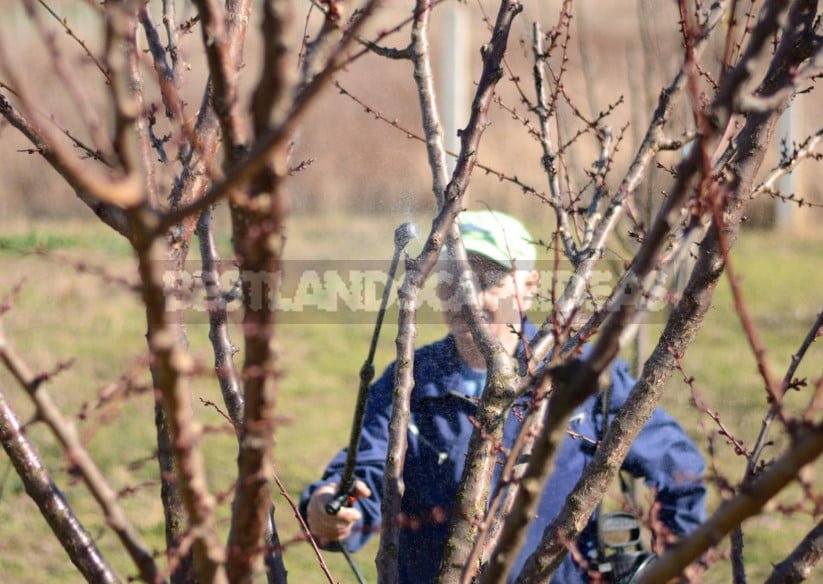
When processing, it is important to calculate the time correctly. Usually they are carried out in the middle of April – at this time the insects have woken up and laid eggs, and the buds on the trees have not yet begun to bloom. It is important to understand that iron vitriol can not destroy absolutely all pests, so do not limit yourself to its use.
Application for the control of fungal diseases
Iron vitriol is able to cope with many fungal infections of plants. It acts as a contact action fungicide (that is, as a substance that can not penetrate into the cells and the space between them), so quickly (within 2 weeks) washed away by rain. To get rid of fungal diseases, it is enough to use a 3% solution of iron sulfate.
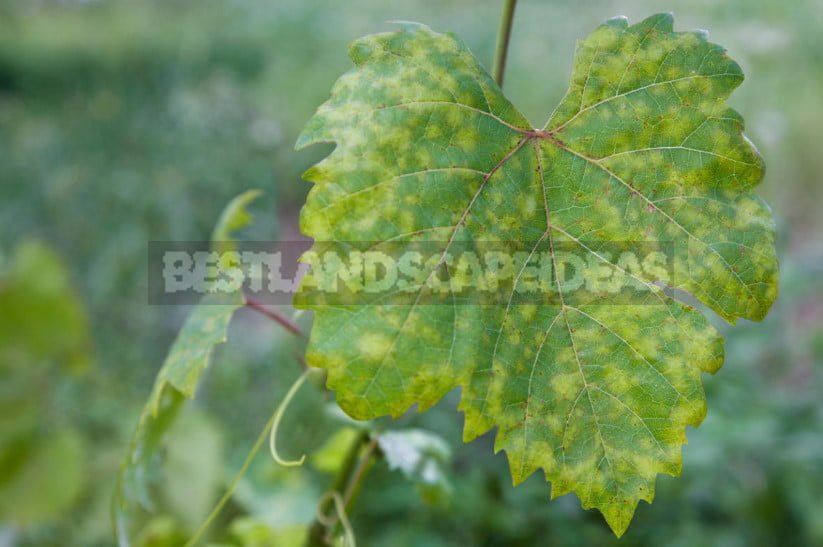
It should be remembered that the surface treatment with this solution can not completely destroy the fungus, since its spores can be stored in hard-to-reach places. So for a more reliable result it is better to treat with products containing copper. You can alternate the use of these drugs: in the spring to spray copper sulfate, and in the autumn to treat iron. It should also be borne in mind that iron sulfate is not able to protect your plants from bacterial infections.
Iron vitriol in non-infectious chlorosis
Sometimes plants may suffer from a lack of iron in the soil or an inability to absorb it. There is non-infectious chlorosis, which is expressed in yellowing of leaves and General weakening of plants.
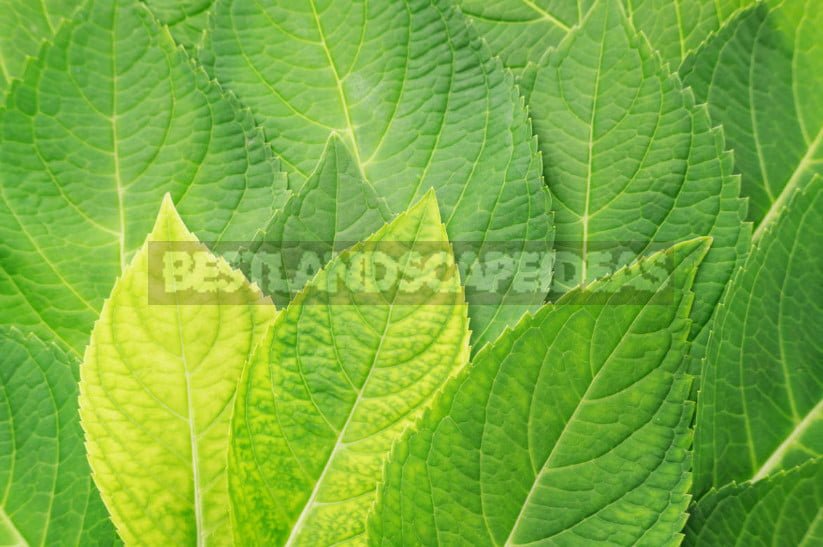
Iron vitriol will help to cope with this disease. To do this, prepare a solution at the rate of 30-50 g of the drug per 10 liters of water and spray the plants several times in 5-6 days before the complete restoration of the green color. For preventive purposes, use 10 g per 10 liters of water.
Fertilizer from iron sulphate
Using iron sulfate, you can prepare yourself a very valuable fertilizer – iron chelate. It is a microfertilizer containing ferrous iron-that is, iron in the most accessible form for plant cells. Iron chelate is used to treat and prevent non-infectious chlorosis.
For cooking you need to dissolve 5 g of citric acid in 2 liters of water, 8 g of ferrous sulfate dissolved in the same volume of warm water and slowly pour, stirring constantly, into a prepared solution of citric acid. Add here another 1 liter of water.
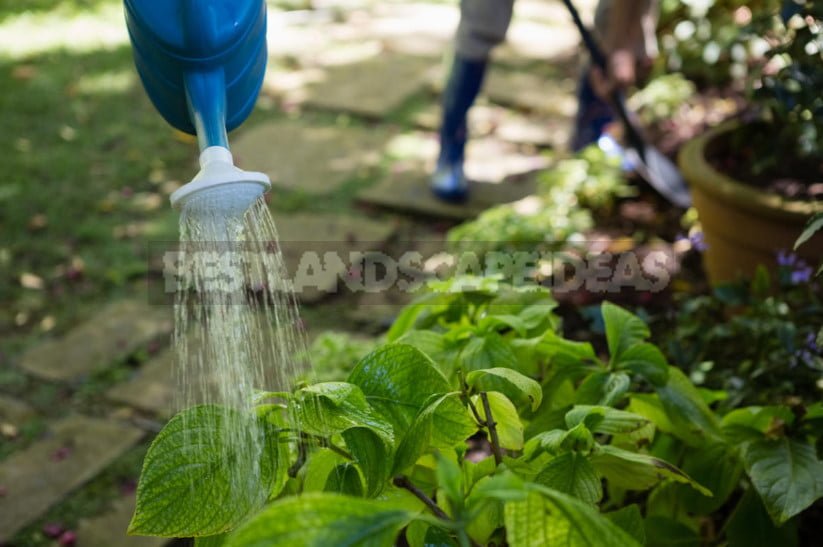
At the output, we obtain 5 liters of 0.5% transparent orange solution. Apply it immediately, without diluting. This is a very effective fertilizer for many garden and vegetable crops.
Iron sulfate will destroy the lichens
Sometimes, lichens settle on the bark of old trees. And here comes to the aid of iron vitriol. For the treatment of stone trees and berry bushes, a 3% solution (300 g of substance per 10 liters of water) is suitable. For spraying pome fruit-5% solution (500 g per 10 liters of water). If you spend this treatment in the spring, during the summer the lichens will come down themselves, and the bark will be clean and smooth.
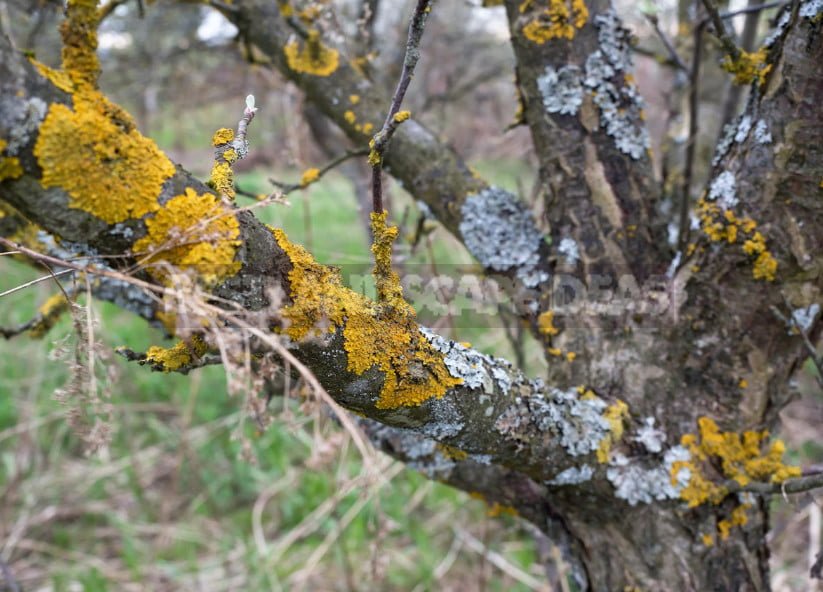
If there are wounds and cracks on the tree trunk, it is useful to treat them with 1% solution (100 g of vitriol per 10 liters of water)-this will serve as a good disinfection.
More about the benefits of iron sulfate
When spraying plants with iron vitriol (3-4% solution) in early spring almost a week delayed Bud break, which will help the grapes and many other shrubs to move painlessly spring frosts.
To destroy the wood fungus need to dilute 1.5 kg of iron sulfate in 10 liters of water. And for the surface treatment of the walls of basements and cellars prepare a weak solution of 60 g of the preparation per 1 liter of water.
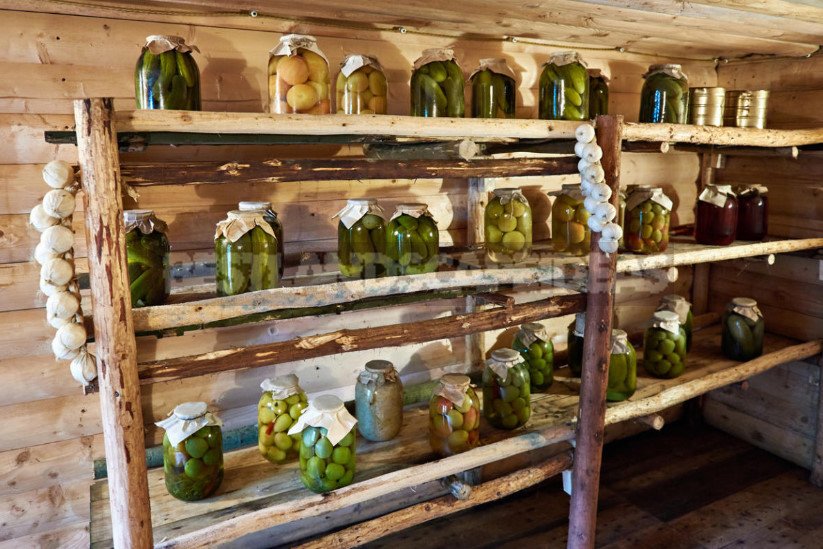
Important rules for working with iron sulphate
- First of all, carefully read the instructions for use.
- Highly concentrated (3-5%) solutions should be used only on bare branches – before Bud break or after autumn leaf fall. In contact with the green parts of the plants, iron vitriol can cause severe burns.
- Dilute the vitriol should be in a glass, enamel or plastic container.
- Mandatory protection of hands with rubber gloves.
- In case of contact with eyes or mucous membranes, rinse them with clean water.
- In no case do not mix with lime (not to be confused with copper sulfate, it is just connected with lime).
- It is possible to store crystalline iron vitriol indefinitely, but it is necessary to protect it reliably from moisture.
Dear readers, do you use iron sulphate and how? Share your experience in the comments.


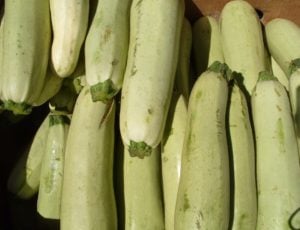

Leave a Reply